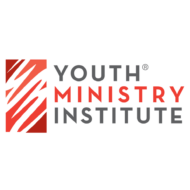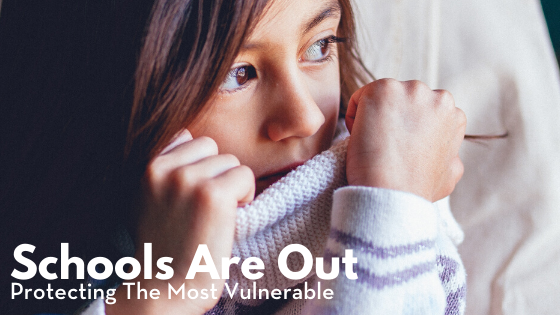Whether schools are out for summer break, or as we are experiencing in this current situation where a pandemic has caused the untimely closure of schools, the consequences experienced by kids may be more than you would expect. The educational, health, and safety impact of school dismissal can be especially significant in some of the most vulnerable of our children.
While the academic component may seem fairly obvious, the health and safety aspect may not be. When kids are not in school, they not only miss critical structured learning opportunities, but they also miss out on having basic needs met like having a guaranteed breakfast and lunch. These meals may be the only food that a child sees in a day. The United States Department of Agriculture (USDA) indicates that almost half a million households in Georgia experience food insecurity, leaving schools as a mainstay in nutrition delivery for so many of our kids.
Maltreatment & Abuse
While schools are out, kids are also missing out on important connections with trusted adults, which poses a real opportunity for cases of suspected maltreatment and abuse to go unrecognized, and thus unreported. Georgia law [OCGA 19-7-5(c)(1)] deems certain people as mandatory reporters. The law requires that these individuals, based on their job description, training, and their role in interacting with children and families, report suspected cases of child abuse or maltreatment. For a school-aged student this may be a teacher, counselor, school nurse, and even a member of the cafeteria staff, a security officer, or a school volunteer. [1]
Recently, the Georgia Department of Family and Children Services (DFCS), the agency responsible for receiving and following up on suspected child abuse reports, indicated that reports of child maltreatment from school-related mandatory reporters comprised roughly half of all reports during the first two weeks of March 2020 (prior to the closure of schools due to COVID-19). The statistics from the last half of March 2020 (after schools were closed statewide) indicated that reports from school-related mandatory reporters declined 90%.
I would love to think this correlated with a decline in cases of child maltreatment. My nursing background, and honestly common sense, tells me that this just is not the case. We know that an increase in stress, such as the stress of economic uncertainty and serious health threats that are being universally felt, increases the cases of abuse and maltreatment. So, what can we do to support the most vulnerable kids?
Supporting The Most Vulnerable
Stay Connected
Keeping in touch with children and families from your community and faith groups is important. Your connection is a way to know what is going on with them and gives you the chance to respond when needed. In our current reality of social distancing, get creative on how to connect when we cannot be together physically. Use Zoom, Skype, social media platforms, and even the old-fashioned phone and mail system to stay connected.
Seek Training
It is imperative to be able to recognize signs of suspected child abuse and maltreatment- know the signs, know the stressors that may exacerbate unsafe situations at home, and know who to reach out to when you recognize these. Prevent Child Abuse Georgia (PCA) offers free online training opportunities and resources to community members and families and can be accessed on their website: http://preventchildabusega.org/.
Know Where To Find Resources
Finally, be aware of where to find resources for families when needs are identified. Public Health departments (located in every state), the United Way 2-1-1 community referral line, the PCA Georgia caregivers support helpline (1-800-CHILDREN), and https://www.childwelfare.gov/organizations/ has a list of other national and state child welfare organizations and a list of each state’s child abuse/neglect hotlines. These are only examples of the many community resources that can help children and families meet basic needs.
Schools being out can be a time of uncertainty and instability for many kids. Community and faith leaders can help ensure that these children and families remain connected, cared for, and protected against threats to their health and safety.
References
USDA Food Security In the United States (Federal Site)
Child Welfare Information Gateway (Federal Site)
State of Georgia – Family & Children Services (Georgia Site)
Prevent Child Abuse (National Site)
Prevent Childre Abuse (Georgia State University)
Georgia Department of Health (Each State Has a Department of Health)
United Way (National Site)

Sara Kroening
RN, MSN, FNP-BC, AE-C
Sara received both a bachelor’s and Master of Science degree in Nursing from Clemson University and has also earned a post-master’s certificate from the University of South Carolina. She is certified by the American Nurses Credentialing Center as a Family Nurse Practitioner and is a certified Asthma Educator. Sara has been a nurse for over 19 years and has practiced in the areas of acute pediatrics, endocrine and diabetes, and public health among others. She resides in Peachtree Corners, GA with her husband and two daughters.


We Would Love to Hear Your Thoughts